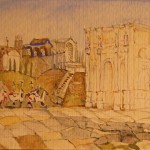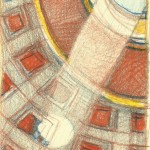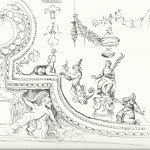 The summer is an ideal time to regroup and recharge. We used these months to do quite a bit of reading and prepare for the 2014-2015 book club season. Some of the books we chose for summer reading were quite good, while others didn’t hit the mark. The ones we believe would be ideal reading group selections are Tinkers by Paul Harding, The Round House by Louise Erdrich, Indignation by Philip Roth, and The Signature of All Things by Elizabeth Gilbert.
The summer is an ideal time to regroup and recharge. We used these months to do quite a bit of reading and prepare for the 2014-2015 book club season. Some of the books we chose for summer reading were quite good, while others didn’t hit the mark. The ones we believe would be ideal reading group selections are Tinkers by Paul Harding, The Round House by Louise Erdrich, Indignation by Philip Roth, and The Signature of All Things by Elizabeth Gilbert.
While we are big Dave Eggers’ fans,  A Heartbreaking Work of Staggering Genius didn’t thrill us. Unlike his other books (Zeitoun, A Hologram for the King, What is the What, and The Circle), his memoir didn’t have the weight of his social and political commentaries. But, it did shed light on his personality and why he chooses many of his subjects. Another novel that was a bit disappointing was In Paradise by Peter Matthiessen. If you want to delve into his work, read The Snow Leopard or Shadow Country.
Book by Book: Notes on Reading and Life by Michael Dirda was the standout selection of the summer. A slim volume of non-fiction, it put so much of what we read and why we engage in this activity into perspective. We highly recommend that this book be included in your reading lists as it will add so much to your understanding of fiction and life.
As promised, here is the fall line-up for one of our reading groups. If you recall, last year we focused on young writers under 40. This year we are reading classics (loosely defined as we are including some contemporary authors).
- Â Sister Carrie by Theodore Dreiser
- Lucky Jim by Kingsley Amis
- The Power and the Glory by Graham Greene
- Heart of Darkness by Joseph Conrad
- The Group by Mary McCarthy
- Sabbath’s Theater by Philip Roth
- Blue Angel by Francine Prose
- My Antonia by Willa Cather
We invite you to read along with us and post comments as we share our impressions of these novels.


